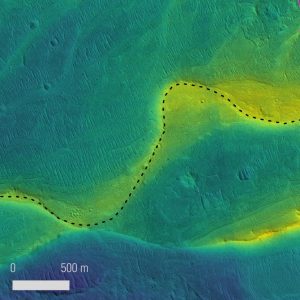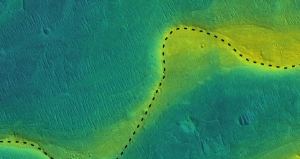Mars had large rivers long after the planet lost most of its atmosphere to space, a new study suggests.
That great thinning, which was driven by air-stripping solar particles, was mostly complete by 3.7 billion years ago, leaving Mars with an atmosphere far wispier than Earth’s. But Martian rivers likely didn’t totally dry out until less than 1 billion years ago, the new study found. And these waterways were big — wider, on average, than those on Earth.
“We can start to see that Mars didn’t just have one wet period early in its history and then dried out,” study lead author Edwin Kite, an assistant professor of geophysical sciences at the University of Chicago, told Space.com. “It’s more complicated than that; there were multiple wet periods.”

Kite and his colleagues performed a global survey of Mars’ ancient waterways, characterizing more than 200 such systems using imagery and other data captured from orbit. They derived age estimates for these rivers by counting craters in the surrounding terrain.
The team’s work suggests that Martian rivers flowed intermittently but intensely over much of the planet’s 4.5-billion-year history, driven by precipitation-fed runoff. The rivers’ impressive width — in many cases, more than twice that of comparable Earth catchments — is a testament to that intensity.
Read more HERE
Ask me anything
Explore related questions





